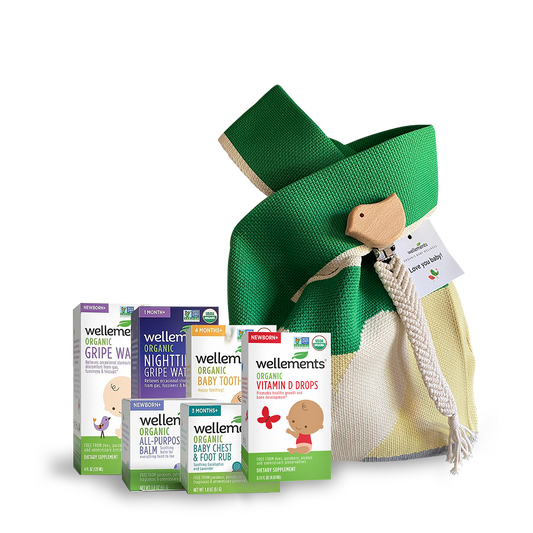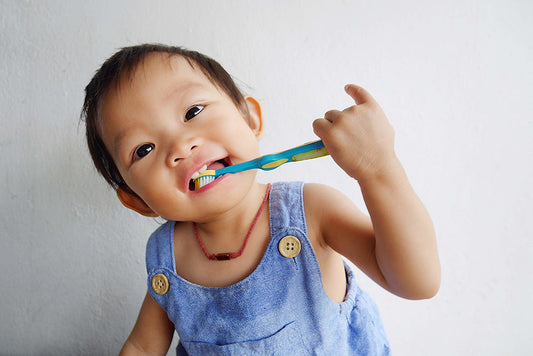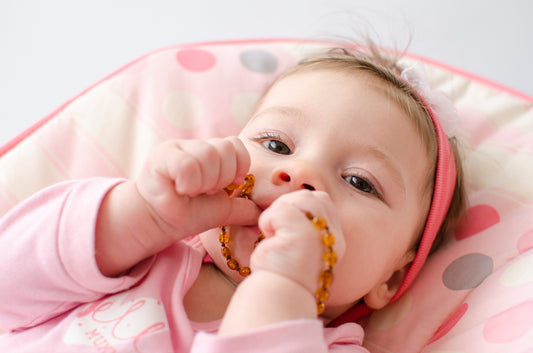Parents' Guide: Bonding With Your Newborn Baby
| updated:Share

It’s safe to say that having a baby changes your entire perspective on life. Everything you cared about before suddenly changes and your attention shifts toward this tiny human you are now responsible for. It’s an amazing thing, but it can be the hardest transition of your life. Suddenly, day-to-day tasks that consumed you before are meaningless now. Your worries revolve solely around your child’s well-being. You think about things that never concerned you before, like sharp corners on furniture or over-processed foods. You want only the best for your little one, and who could blame you?
While ensuring the safety of your child is vital, so too is establishing your bond. You may think this bond will simply exist, but that is not always the case. In fact, many mothers suffer from postpartum depression and do not feel as connected to their child after birth. This is completely normal! Working to establish a bond early, even before birth can help the transition once baby enters this world.
Why Bonding Is So Important
Bonding is when a strong emotional and physical attachment occurs between a baby and caregiver. The caregiver may be the biological or adoptive mother, father or guardian. Developing a bond with a newborn is crucial to their growth. While it may seem strange, a healthy bond encourages chemicals and hormones necessary for brain development. The early connections an infant makes will help in learning, growth, emotional stability and behavior.
Beyond the biological reactions that occur to allow for healthy maturing, a newborn relies on you, the parent or caregiver, to care for their physical needs. In the womb, the baby is protected and nurtured automatically; outside of the womb, they cannot fend for themselves and do not understand what they need to survive. Bonding is a critical component to survival and thriving in life.
Building a Secure Attachment
Many people believe that bonding must wait until after birth, but that is not true. At seven months, your baby can hear your voice. Many studies show that a newborn recognizes its mother's voice immediately after birth. Begin speaking to your child in these early months and encourage your partner to do the same. Both of you should talk to your child, so they know your voices when they are born.
Attachment can also arise out of routine. When born, your newborn will need constant attention and supervision. Have a space in your home that allows for one-on-one time. During these quiet moments, hold your child close and look into their eyes. Laugh with them. Listen to music. Read or merely enjoy being with them. As infants, they are watching to learn how they should interact with their world.
4.6 /
5.0
(43)
43
total reviews
Newborn Bundle
Sale price
$72.00
What Is Skin-To-Skin?
Skin-to-skin contact is allowing your baby's skin to rest on yours. Leave your baby in their diaper and hold them to your bare belly or chest. You can cover over the child with a blanket if it is cold. Many studies show that skin-to-skin contact encourages the regulation of lung and heart functions, temperature and blood sugar.
Beyond your baby experiencing a more efficient use of energy, skin-to-skin bonding will also help you. By spending these moments with your child, you will learn their cues for discomfort and hunger. You will undoubtedly realize that you and your child are most relaxed when together, which is a good thing, especially in the newborn stage.
How Long Does Bonding Take?
While bonding is crucial to your child's development and your relationship, do not rush it. Some parents experience an intense attachment within 24 hours of their child's birth. Those that share a quick bond typically describe it as an overwhelming feeling of love and protectiveness. However, not every parent will experience the same emotions in the same time frame.
Bonding is different for every parent and baby’s relationship. A parent may have multiple children, and the experience with each child will differ significantly. The attachment process may take days, weeks or even months. Do not feel concerned if it takes you some time to feel connected with your child, but if you feel detached or resentful for more than a few weeks, you may want to speak with a specialist for more support.
Bonding Support
If you struggle to form an attachment with your newborn, do not be hard on yourself. Again, this is totally normal! Many parents have trouble creating a bond in the early days, weeks or months of their child's life. While there is nothing uncommon about your feelings, you may still need additional help and support, especially if your feelings become resentful or neglectful.
Although we expect it to be the most natural thing in the world, bonding with your baby often takes time. For many parents, forming attachments with their children is a process - it takes patience and oftentimes additional help. During these days, weeks or months, it is still your job, as nurturer and provider, to tend to the needs of your newborn. While bonding is a large part of parenting and care, it is not the only thing. Take the time to not only focus on your new baby but also yourself. Find a support system, ask for help and know that you are not alone in this.



